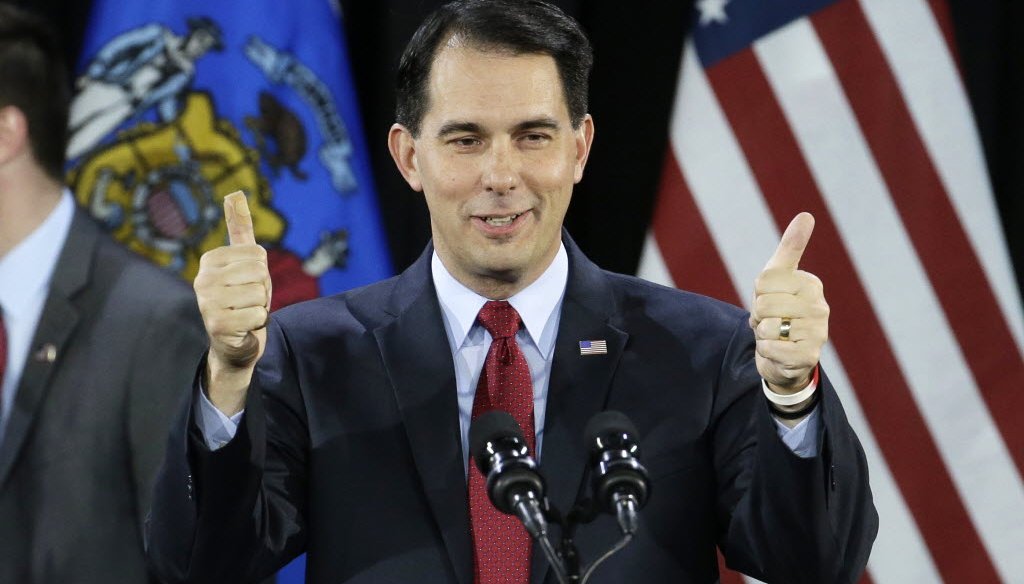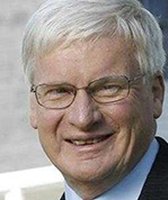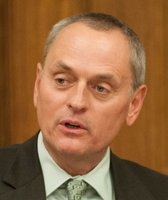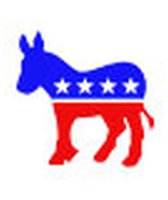Get PolitiFact in your inbox.

Republican Wisconsin Gov. Scott Walker celebrating his re-election win on Nov. 4, 2014. The victory fueled talk of Walker as a potential presidential candidate in 2016. (AP photo)
As he lays the groundwork for a presidential run, Gov. Scott Walker has found himself drawing contrasts with GOP rival and former Florida Gov. Jeb Bush.
Sometimes directly, but often more subtly, Walker highlights differences in substance, style and story.
He chose the latter course March 25, 2015 when speaking to an Arizona audience, where his speech included his definition for "American exceptionalism."
"America is an exceptional country. And I think, unfortunately, sometimes there are many in Washington who think those of us who believe we are exceptional means we are superior, that we’re better than others in the world," Walker said.
"No," he continued. "Being an exceptional country means we have a higher responsibility than others, not just to care for ourselves and our own interests, but to lead in the world. To insure that all freedom loving people who have the capacity to yearn for that freedom, have that freedom."
In a foreign policy speech in Chicago five weeks earlier, Bush seemed to argue that America’s deeds made it No. 1.
"American leadership projected consistently and grounded in principle has been a benefit to the world. In the post-World War II era, the United States has helped hundreds of millions of people out of poverty, secured liberty for an equal number, and has been a force for peace and security," Bush said.
"Only our exceptional country can make that claim."
He too, though, talked of responsibilities.
"This has happened because our presidents, both Republicans and Democrats, have accepted the responsibilities of American power in the world with the belief that we are a force for good," Bush said.
The meaning and significance of "American exceptionalism" has become a partisan flash point in recent years as Republicans have questioned President Barack Obama’s patriotism and love of country.
The GOP candidates hoping to succeed Obama frequently discuss America’s status in the world. In this In Context feature, we will explore how their varying presentations reveal differences in tone and emphasis, and how the statements draw from their own backgrounds and connect to their campaign strategies.
The issue exploded Feb. 18, 2015, the day of Bush’s speech, when
former New York City Mayor Rudy Giuliani scorched Obama in a speech, saying, "I do not believe that the president loves America."
Walker spoke at the same event, and heard Giuliani offer his endorsement to any presidential candidate who can express that "with all our flaws we’re the most exceptional country in the world."
Two days later, Walker told the Milwaukee Journal Sentinel that Giuliani had not crossed a line. Asked if he thought Obama loves America, Walker said it wasn’t worth arguing about.
"I know I do," Walker said. "And I know there are great people in this country who love this country and who ... feel this country’s exceptional and it doesn’t necessarily align by party. I think there are Republicans and Democrats and plenty of people in between."
He’s right about the bipartisan flavor on the issue.
Bipartisan agreement?
In 2010, a USA Today/Gallup poll found that 73 percent of Democrats and 91 percent of Republicans agreed that America’s history and the U.S. Constitution give it a unique character.
But more recent polls have showed significant slippage in that belief, something Republicans are bemoaning as they seek to win back the White House.
And some see important partisan differences on the issue.
David A. Lake, a University of California-San Diego political science professor, argued in an essay published on CNN.com that many conservatives call for a foreign policy unfettered by the United Nations because they believe in the cultural superiority and inherent goodness of America.
Contemporary liberals support a larger, more activist role for government at home and abroad, Lake wrote, because they trust that the competing branches of government will limit the influence of what James Madison called "factions."
In Lake’s view, liberals believe a multi-governmental approach to foreign policy will result in other countries accepting the unique leadership status of the United States.
The issue flared in 2013 when Russian President Vladimir Putin called the notion of American superiority "extremely dangerous" after Obama defended military action in Syria as an example of American exceptionalism.
Conservative commentator Peggy Noonan shot back: "America is not exceptional because it has long attempted to be a force for good in the world, it attempts to be a force for good because it is exceptional."
U.S. Sen. Rand Paul of Kentucky, another GOP 2016 hopeful, responded to Putin this way: "While he is correct that God created every human being as an equal in His eyes, clearly the results of each of our efforts on this earth, individually and collectively, are not equal."
Paul added: "America’s exceptionalism is rooted in our founding documents and values. From the rights granted by our creator, but guaranteed by our Constitution."
Walker's strategy
Walker defines exceptionalism in a way that he hopes will cause listeners to conclude that he possesses special qualities at a crucial moment in US history.
"Moments like that remind me that what makes America great," he said at the Conservative Political Action Conference in late February 2015.
"What makes us exceptional, what makes us arguably the greatest country in the history of the world," said Walker, "is that in moments of crisis, economic or fiscal, military or spiritual, there have been men and women throughout our history who have stood up and made decisions that think about more about the future of their children and grandchildren than they did about their own political futures."
Walker often refers to domestic issues when he makes that point, notably his tough stand against unions -- the enactment of a controversial law that dramatically curtailed public-sector collective bargaining in Wisconsin except for law enforcement workers.
One challenge facing all the Republican candidates is how to frame their complaints about incumbent Democrats without sounding overly pessimistic.
How can America be both the greatest -- and in need of dramatic action to make it great again?
U.S. Sen. Marco Rubio of Florida, who is also eyeing a 2016 bid, has framed the race as a stark choice between accepting American decline or getting the country back on track to a posture of assertive global leadership, the National Journal reported in February 2015.
Biography is an integral part of Rubio’s message, the story noted, calling him the son of working-class immigrant parents who worked hard and were rewarded by American meritocracy.
That story quoted Rubio during a New Hampshire visit talking about America at a tipping point:
"What we have in America is special. It is unique. Not in the world today, it's unique in human history. What we're being asked to decide now is whether we want to continue being that kind of country, or are we prepared to become just like everyone else. And we have reason to worry."
Walker walks the line too, talking about the need for an optimistic vision for America while describing in the gloomiest of tones a deeply wounded country on the edge.
"America stands on the brink," says the voiceover in a video produced by his political action committee, Our American Revival, whose very name suggests a nation needing reinvigoration.
In the video, ominous music plays as we hear: "At a time and place in our history where failed leaders preside over a nation adrift. With family incomes in steady decline. Dreams stifled."
The kicker: An image of Obama greeting Japan’s emperor with a bow, as the narrator decries "a foreign policy that apologizes for America and projects weakness abroad."
Our Sources
American Bridge video of Walker speech in Arizona, posted March 26, 2015
National Journal, Feb. 24, 2015
National Review, Sept. 13, 2013
CNN.com, Dec. 2, 2011
BBC, Sept. 13, 2013
New York Times, Feb. 18, 2015
Slate, Feb. 20, 2015
Breitbart, Feb. 26, 2015
Politico, Feb. 18, 2015
Time, Sept. 13, 2013
Journal Sentinel, Feb. 20, 2015
USA Today/Gallup poll, Dec. 22, 2010
National Review, Feb. 19, 2015















































